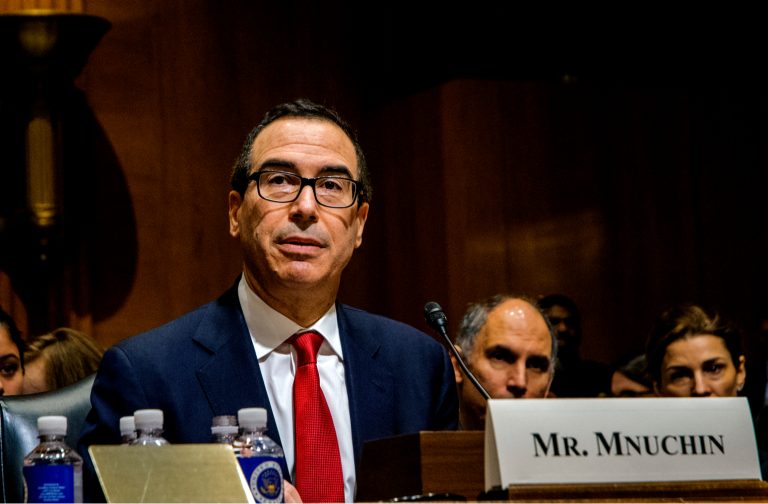2023-6-5 15:00 |
This is an opinion editorial by David Waugh, business development and communications specialist at bitcoin investing platform Coinbits, and Dave Birnbaum, the product director at Coinbits.
Every generation has bones to pick with those who came before. However, Generation Z, those born between the late 1990s and early 2010s, have an especially valid complaint: Previous generations have stolen their future.
Also called “the Zoomers,” this group was forced by lockdowns and school closures to socialize through webcams during their formative years. These 68 million Americans have had their lives disrupted by social upheaval, wealth destruction and cultural decline, all during the prime of their youth.
Many Zoomers do not yet realize the scale of the crime perpetrated against them. Some are waking up. Either way, all of them will soon need to chip in to pay the piper for decades of monetary and fiscal mismanagement by prior generations.
But the situation is not hopeless. There is a tool that Generation Z can use to achieve restitution. Instead of embarking on a dismal project to rebuild our ruined financial system, only to reinstate the rents and inequities that existed before, Zoomers can leave their mark upon history by using bitcoin to build a new system that is resilient, equitable and just.
Like the Greatest Generation, which rebuilt America on strong foundations after facing down the greatest threat to humanity that had ever manifested, Generation Z can channel their well-earned sense of betrayal and loss to create a world order worthy of being passed down to their own children and grandchildren.
Backed Into A CornerSometimes called “the loneliest generation,” Gen Z has been sold out by their elders, who have declined to make the necessary sacrifices to allow future generations to prosper. The psychological warfare waged against Zoomers is sometimes subtle, but often, it is not. In schools, mass media and online, they are assailed with doom about climate, race and exploitation, and told that their future has been stolen by evil people who selfishly refuse to fix those problems.
In fact, this is a half truth. The Zoomers' future has indeed been stolen, but not by polluters and racists. Instead, globalist elites, smart enough to see their system failing but not courageous enough to take responsibility for it, have looted the financial and cultural capital left to us by the Greatest Generation.
As part of the coverup for this crime, Zoomers have endured a constant onslaught of depressing propaganda. They are told the world will end in 10 years. "Climate anxiety" is widespread among a generation that is instructed to feel guilty for their existence rather than called to create new things and solve problems. Previous generations shot for the moon. Today’s elites disparage space exploration out of concern that rockets might affect the weather.
All of this has yielded predictable results. Zoomers experience high rates of suicide, depression, anxiety and many feel that life is meaningless.
Politicians are not likely to offer a solution. Appealing to the voting base of Generation Z is a shameful game of gaslighting, virtue signaling and self-righteous power grabs. Political leaders deny reality, and claim that they can engineer prosperity using central planning. Government schools and universities generally fail to deliver a quality humanist education, depriving an entire generation of the necessary intellectual tools to notice this deception.
Growing Awareness Of The ProblemAnd yet, many members of Generation Z are coming to important realizations as they work their way through the rubble of the university system and join the workforce. We recently caught up with Jack Nicastro, a current Dartmouth College student, who believes he can see through politically motivated pessimism:
“Mainstream culture is hopelessly (and insupportably) pessimistic, particularly apropos technology,” Nicastro said. “Politicians capitalize on the populace's anxieties about technology, automation and AI with their usual demagoguery to advance illiberal policy agenda, as evidenced by the TikTok hearings.”
Sid Gundapaneni, a student at Binghamton University, offered a similar perspective, stating he is, “optimistic in a broad sense” regarding living standards, though less certain about the future of freedom:
“From a liberty standpoint, I'm unable to maintain such confidence — and I believe there are long-term consequences for this,” he said. “But right now, governments and their subsidized industries show no fatigue in their massive growth.”
Coming To Terms With The ChallengeThe fiscal and monetary crises facing Gen Z are significant. The national debt is over $31 trillion, and unfunded liabilities exceed $187 trillion. Thanks to a politicized and incompetent Federal Reserve, the American economy is headed toward stagflation, a nasty phenomenon where inflation and unemployment intensify at the same time.
Leaders from major political parties claim Social Security and Medicare reforms are off the table. Brian Riedl, senior fellow at the Manhattan Institute, recently stated that both programs “will drive $116 trillion in budget deficits over the next 30 years, according to CBO (Congressional Budget Office) data.”
Some Zoomers recognize the need for reform. In a Wall Street Journal article featuring student commentary on Social Security, Mark Panjaitan, an undergraduate at the University of Texas at Austin, stated, “Instead of placing retirement dreams in the hands of a deadlocked Congress, I advise everyone to depend on the fruits of their own labor.”
Another, Ryan Callahan of the University of Virginia, claimed, “Regardless of the changes Congress makes, Social Security will be a ghost of its former self by the time my generation can collect.”
With the political process unable to address basic needs for change, let alone ambitious projects that require sacrifice for the sake of future generations, voting and activism cannot solve this problem alone. On our current trajectory, the amount of economic growth that would be needed to pay off our debt is almost mathematically impossible — barring a technology breakthrough that rearranges the chess board.
A Generation Primed For BitcoinA defining characteristic of Zoomers that makes them worthy of their name is that they move incredibly fast. Gen Z was brought up on a media diet of frenetic stimulation. Its members are quick to learn new technologies and good at using them to create novel content, apps and social experiences.
As McKinsey researchers noted, “Members of Gen Z… are true digital natives: from earliest youth, they have been exposed to the internet, to social networks, and to mobile systems.”
This fast-paced, technology-centric way of life primes the Zoomers for Bitcoin. While previous generations might balk at Bitcoin’s unfamiliarity, Zoomers are more comfortable with Bitcoin than they are with traditional banks and financial products. They are well positioned to build out the necessary infrastructure to bring Bitcoin to billions of people — and change the calculus confronting the problems of their time.
The Journey HomeAlthough Bitcoin offers hope for Zoomers, they must steel themselves for what is to come — a difficult journey to return to a balanced and free society. Preparing will require independent study, to make up for the miseducation prevalent in government schools and higher education. They will need to organize their own communities using encrypted communication networks in the face of censorship, intimidation and surveillance. They must permeate existing institutions, such as the legal and financial fields, public service and corporate leadership, with the means to impose tough reforms.
In addition, they will need to understand that Bitcoin provides a key part of these means. Bitcoin is leverage in a world where Gen Z has very little. They’ll need to reject the false promise of “crypto,” and relearn the ancient art of long-term thinking.
Every generation deals with crises, but some generations are called to especially tough challenges. The Greatest Generation went to war to protect humanity from totalitarian regimes. The Zoomers now must face the repercussions of decades of monetary and fiscal irresponsibility, and the downstream destruction it has wrought on their freedoms and their culture.
They did not ask for it, but for a generation of young people who struggle to believe that their lives have meaning, the calling to rebuild with Bitcoin is perhaps the greatest blessing they could have received. It won’t be easy, but it will be worth it.
This is a guest post by David Waugh and Dave Birnbaum. Opinions expressed are entirely their own and do not necessarily reflect those of BTC Inc or Bitcoin Magazine.
origin »Bitcoin price in Telegram @btc_price_every_hour
Bitcoin (BTC) íà Currencies.ru
|
|


























